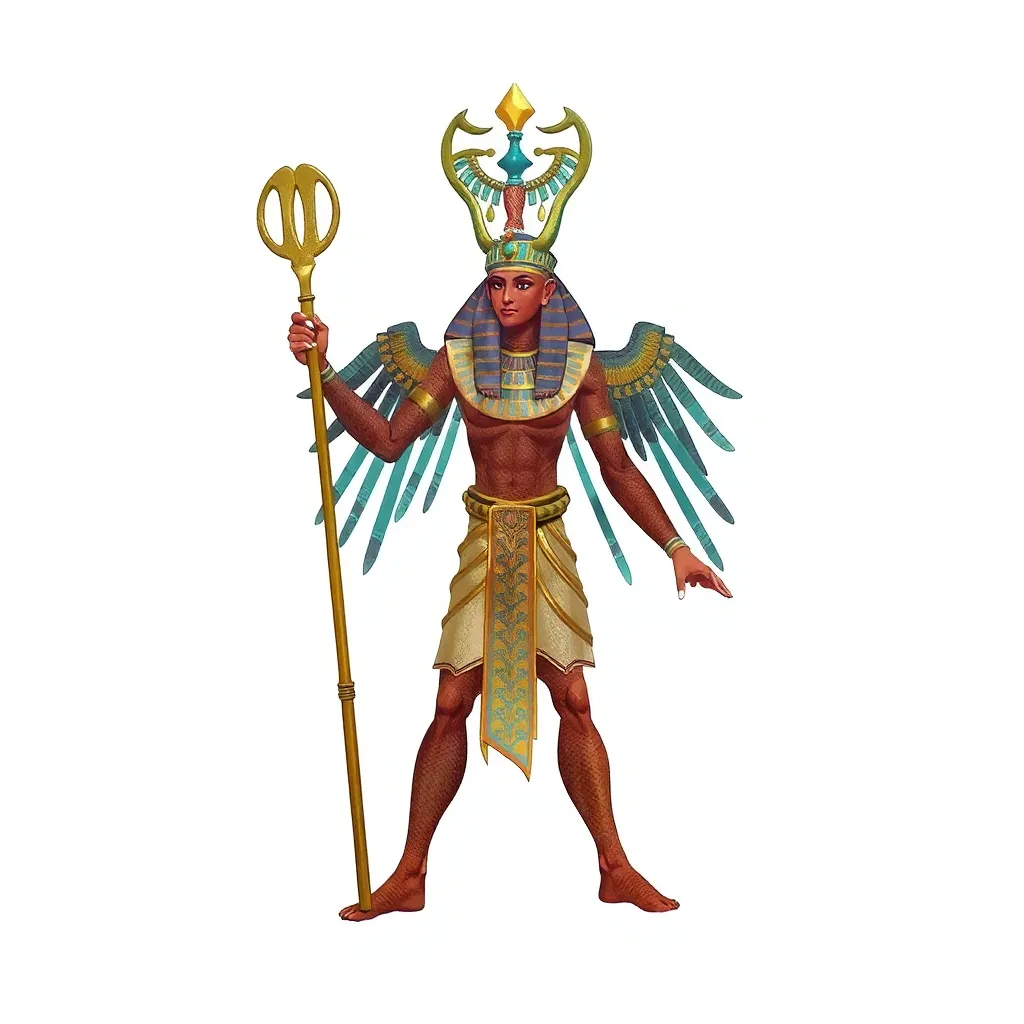The Role of Heka in Egyptian Literature and Poetry
I. Introduction to Heka
Heka, in ancient Egyptian culture, signifies more than just magic; it represents a profound understanding of the universe and the forces that govern it. As both a concept and a deity, Heka embodies the power of words and the transformational nature of language, which were believed to hold the keys to reality and the divine.
In ancient Egypt, Heka was not merely a tool for sorcery but a fundamental aspect of existence, intertwining the realms of the spiritual and the physical. The Egyptians viewed Heka as a primordial force that facilitated creation, healing, and protection, making it integral to their literature and poetry.
II. Historical Context of Heka in Ancient Egypt
A. Origins of Heka in Early Egyptian Civilization
The concept of Heka dates back to the earliest periods of Egyptian civilization, where it emerged alongside the development of writing and religious practices. Heka was not initially personified; instead, it was a principle that governed the cosmos and human affairs.
B. Heka in Religious Practices and Daily Life
In daily life, Heka was invoked in various rituals and practices. Ancient Egyptians used spells and incantations to harness Heka for protection, healing, and to influence fate. The use of amulets inscribed with magical texts further illustrates the significance of Heka in both sacred and mundane contexts.
III. Heka in Egyptian Mythology
A. Deities Associated with Heka and Their Roles
Several deities in Egyptian mythology are closely associated with Heka, most prominently:
- Thoth: The god of wisdom, writing, and magic, who is often depicted as the scribe of the gods.
- Isis: A goddess of magic and healing, known for her powerful spells and protective abilities.
- Horus: Often linked with kingship and protection, embodying the power of Heka in maintaining order.
B. Myths Illustrating the Power of Heka in Creation and Transformation
In various myths, Heka plays a crucial role in creation narratives. One of the most significant stories involves the creation of the world, where Heka is depicted as the force that enabled the gods to bring the universe into existence through spoken words and spells.
Another example is the myth of Isis and Osiris, where Isis uses her knowledge of Heka to resurrect her husband Osiris, showcasing the transformative power of magic in the face of death.
IV. Heka as a Literary Device
A. Use of Heka in Traditional Egyptian Texts and Inscriptions
Heka appears frequently in ancient Egyptian texts, serving as a literary device that enhances the meaning of various writings. From religious texts to administrative documents, the invocation of Heka indicates the importance of magical words and their perceived efficacy.
B. Examples of Heka in Religious and Funerary Literature
In texts such as the “Book of the Dead,” spells often invoke Heka to guide and protect the deceased in their journey through the afterlife. These spells illustrate the belief that the power of Heka can influence the fate of souls, reinforcing its literary significance.
V. Heka in Poetry
A. Thematic Exploration of Heka in Ancient Egyptian Poetry
Heka is a recurring theme in ancient Egyptian poetry, often explored in relation to creation, transformation, and the divine. Poets would invoke Heka to emphasize the power of words and their ability to shape reality, reflecting the belief that language could connect the mortal and the divine.
B. Analysis of Poetic Forms that Incorporate Heka
Various poetic forms, including hymns and laments, incorporate Heka, using it to convey deep emotional and spiritual truths. These poems often highlight the duality of Heka as both a creative and destructive force, embodying the complexities of life and death.
VI. Symbolism of Heka in Literature
A. The Duality of Heka: Creation and Destruction
The symbolism of Heka encompasses both creation and destruction. While it is a powerful force for bringing forth life and order, it can also represent chaos and the potential for destruction. This duality is often reflected in literary works, where Heka serves as a reminder of the delicate balance between these opposing forces.
B. Heka as a Metaphor for Knowledge, Power, and Spiritual Insight
Furthermore, Heka symbolizes knowledge and power, acting as a metaphor for the spiritual insight that comes from understanding the universe. In literature, Heka is often portrayed as the key to unlocking deeper truths, emphasizing its role in the pursuit of wisdom.
VII. Influence of Heka on Later Egyptian Literature
A. Continuity of Heka in Greco-Roman Texts
The concept of Heka continued to influence literature even during the Greco-Roman period, where it was integrated into new philosophical and mystical traditions. Heka’s association with magic and divine language persisted, illustrating its enduring legacy.
B. Heka’s Impact on Modern Interpretations of Ancient Egyptian Literature
In contemporary scholarship, the study of Heka provides valuable insights into ancient Egyptian literature and culture. Modern interpretations often explore the ways in which Heka reflects broader themes of power, language, and the human experience in ancient texts.
VIII. Conclusion
Heka’s multifaceted role in ancient Egyptian literature and poetry highlights its significance as a concept that transcends mere magic. It embodies the power of language, the complexities of creation and destruction, and the quest for knowledge and spiritual insight. The enduring legacy of Heka continues to shape our understanding of Egyptian cultural identity, reminding us of the profound connections between language, magic, and the divine in one of history’s most fascinating civilizations.




